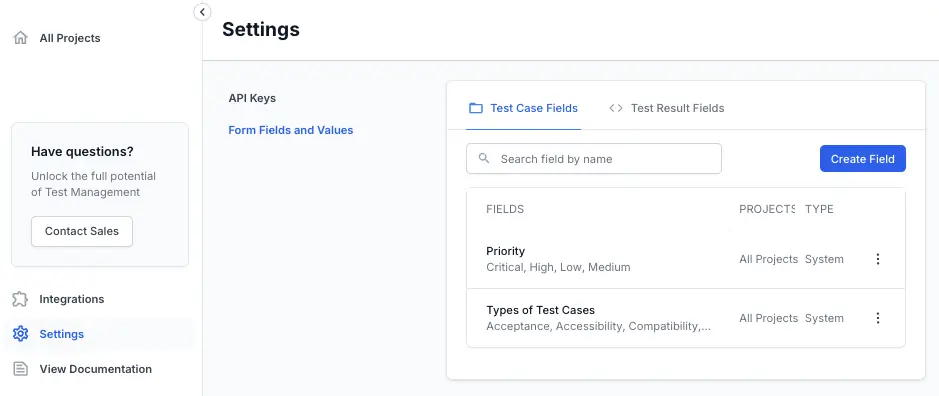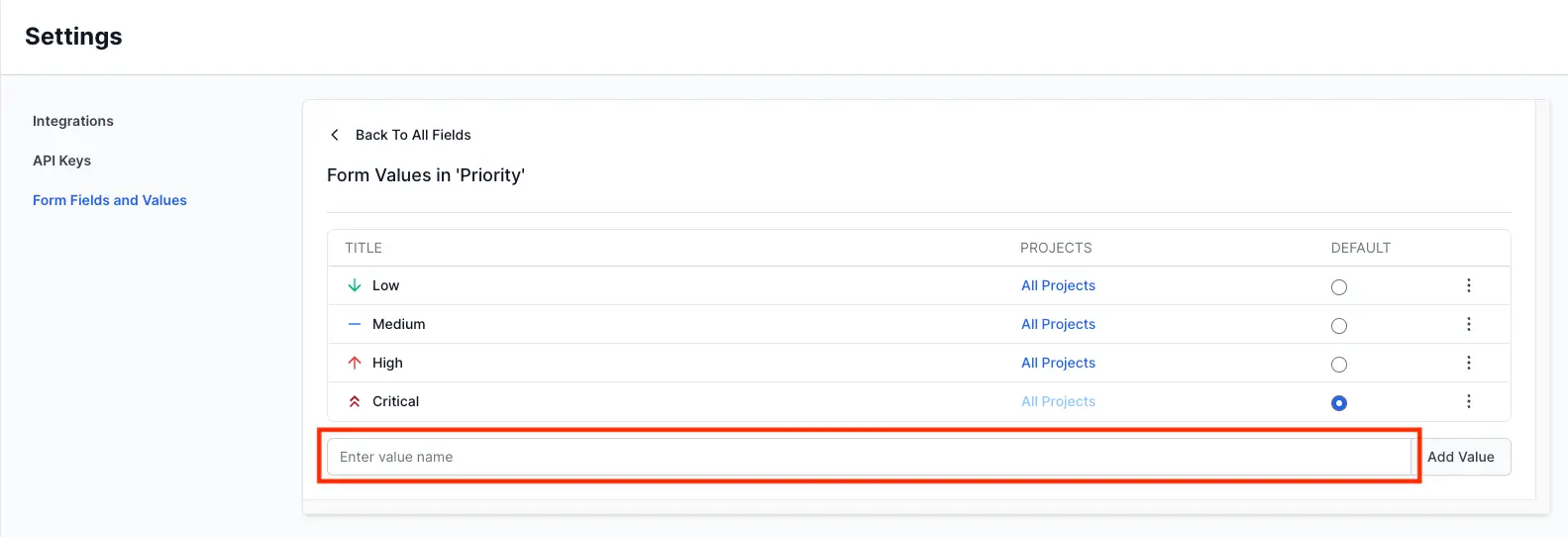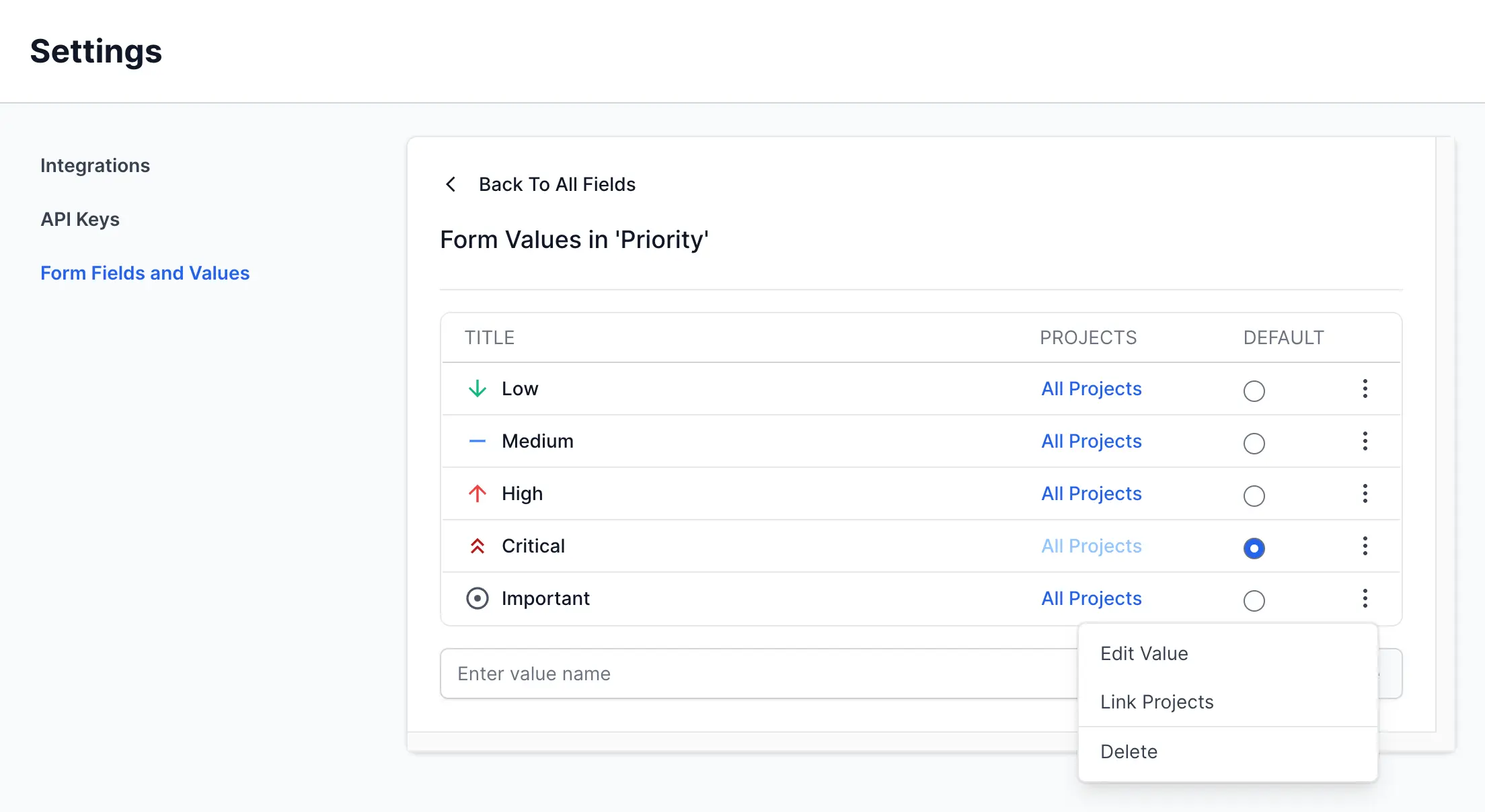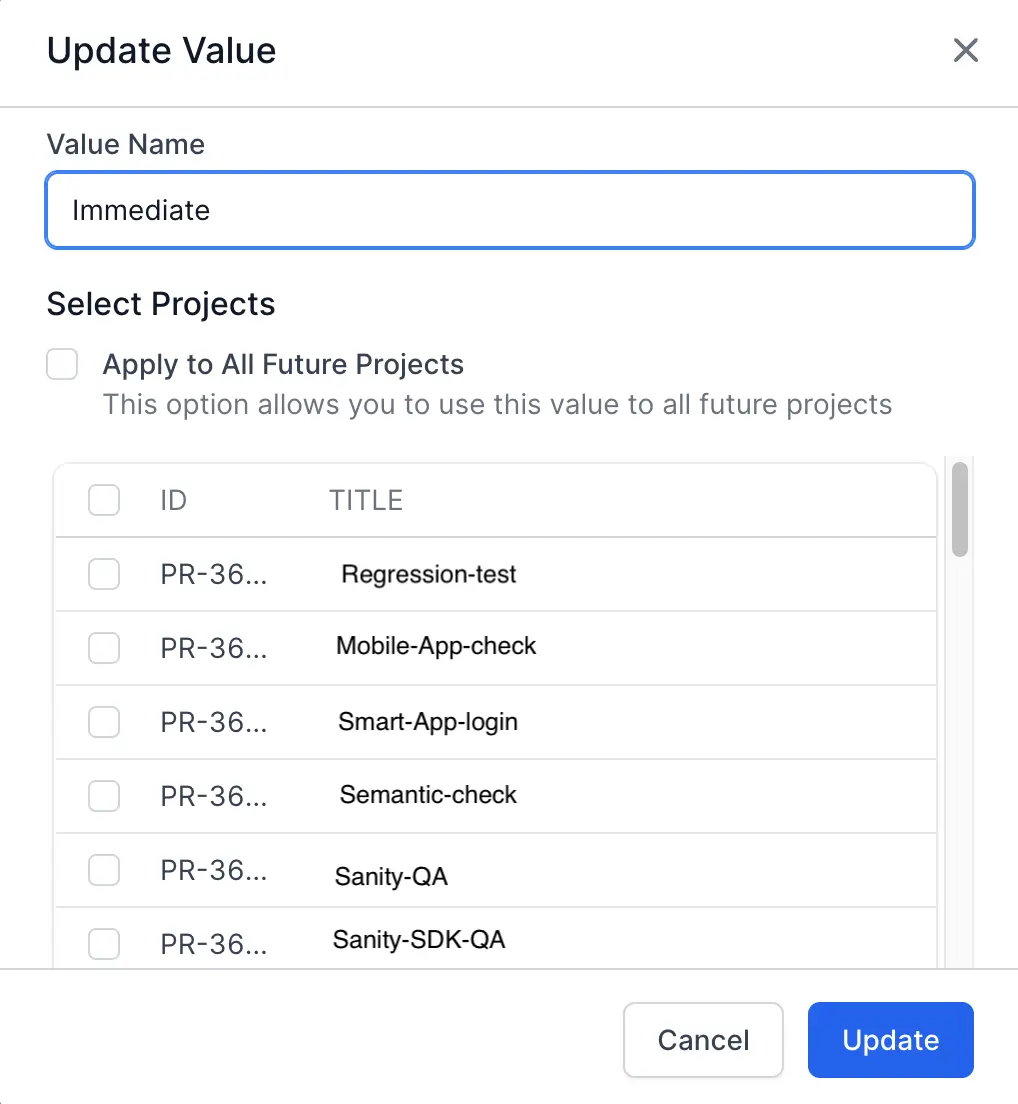System Defined Form Fields
Learn about the functionalities related to system-defined values and custom values in Test Management.
System-defined form fields are pre-configured, read-only fields included in Test Management by default. These fields offer standardized metadata (e.g., “Title,” “State,” “Priority”) to enhance the organization, tracking, and searchability of your test cases. Integrate these fields into your test cases to improve querying. System-defined form fields have system-defined values and will allow you to add custom values.
The system-defined form fields are:
| • Title | • Description | • Preconditions | • Steps | • Result |
| • Attachments | • Tags | • State | • Owner | • Priority |
| • Type of Test Case | • Automation Status | • Jira Issues |
Custom values
Test Management’s Custom Values are user-defined values you can use in Priority and Types of Test Cases form fields. Custom values are a way to extend the functionality of the form fields by storing additional values necessary above and beyond system-defined values.
Create custom value
You can input any value to a form field. All values in a field should be unique.
Following are the three ways to create a custom value:
- Through custom values in the admin page.
- Through a CSV Import.
- Through Quick Import.
Create custom values in the admin page
To create a custom value in the desired form field, follow these steps:
-
Select the desired Form Field.

-
Write the value in the Enter value name field at the bottom of the form.

-
Click Add Value.
If you try to create a value with the same name as the value present in the form, an error appears: “A form value with the same name exists.”
Create custom values using CSV Import
Adding a new custom value through CSV Import will be project-specific by default and won’t be mapped to other projects. If the value already exists for the group but was not mapped to the project in which the Import is being performed, it will be mapped to this project. It is important to note that no new duplicate values will be created.
If the value already exists for the group and was mapped to the project in which the Import is being performed, the field will be auto-mapped. However, if you select the “Create New Value” option, it will not create a new value, and the value will only be mapped with existing values.
To know more about CSV import, see CSV import.
Create custom values using Quick Import
When a new Custom Value is added through Quick Import, it will have the default scope of being specific to the project and will not be enabled for other projects. If the value being imported already exists for the group but was not mapped to the current project, it will be mapped to this project. It is important to note that no new duplicate values will be created.
To know more about Quick import, see Quick import using Test Rail and Quick import using Zephyr.
Update custom value
From Custom Values in the admin page, you can edit the name of the user-defined custom values. You cannot edit a system-defined value. You can also update linking custom value or a system-defined value with the projects. Make sure all custom values you enter in a field are unique. Once you update a field value, it will appear in all the corresponding test cases.
To update a custom value in the desired form field, follow these steps:
- Click the kebab menu on the right of the desired custom value.
-
Click Edit Value.

-
Change the value in the Enter value name field to the new custom value.

Optionally, you may select the checkbox Apply to All Future Projects if you want to use the custom value for all future projects.
- Click Update.
Delete custom value
When managing Custom Values, it is important to note that only the user who creates a custom value can delete it. System-defined values cannot be deleted. You must not delete the last value in a field.
To delete a custom value in the desired form field:
- Click the kebab menu on the right of the desired custom value.
-
Click Delete.

-
Click Delete in the confirmation pop-up.

You cannot delete a value set as default. If you attempt to delete a non-default custom value, a validation pop-up appears asking you to confirm the delete operation. When a custom value is deleted, the corresponding test case data for the field with the deleted value will be set to null.
Role of a default value
By default, the Priority field is set to Medium and the Test Case Type field is set to Other in all selected and future projects. You have the option to set any value as the default value from a set of values that are mapped to a particular project or a set of projects. The default value will then be automatically mapped to all projects.
System Defined Values
System Defined Values are default global values that automatically appear in standard fields within test management projects. These values are designed to provide consistency across all users, making the project setup process more efficient. System Defined Values will already be in place whenever you create a new project, ensuring everyone uses the same standard options.
The System Defined Values for the Priority are:
| • Low | • Medium | • High | • Critical |
The System Defined Values for the Types of Test Cases are:
| • Acceptance | • Accessibility | • Compatibility | • Destructive | • Functional |
| • Other | • Performance | • Regression | • Security | • Smoke & Sanity |
| • Usability |
We're sorry to hear that. Please share your feedback so we can do better
Contact our Support team for immediate help while we work on improving our docs.
We're continuously improving our docs. We'd love to know what you liked
We're sorry to hear that. Please share your feedback so we can do better
Contact our Support team for immediate help while we work on improving our docs.
We're continuously improving our docs. We'd love to know what you liked
Thank you for your valuable feedback!